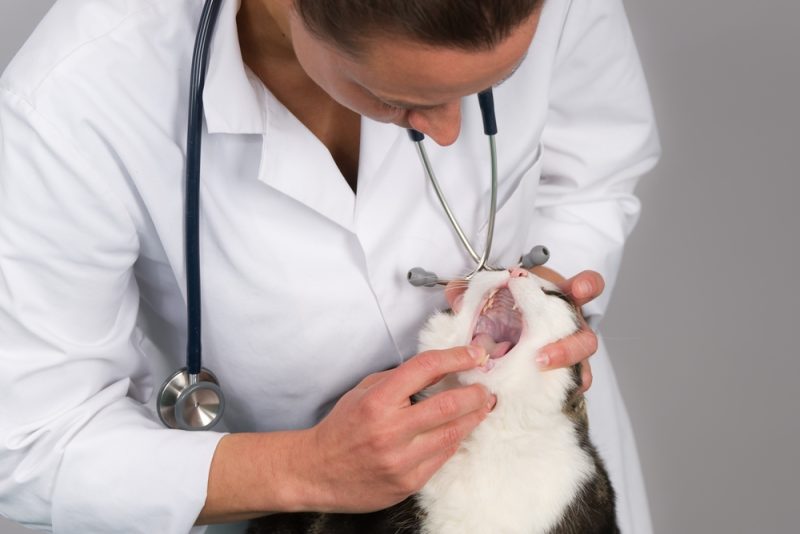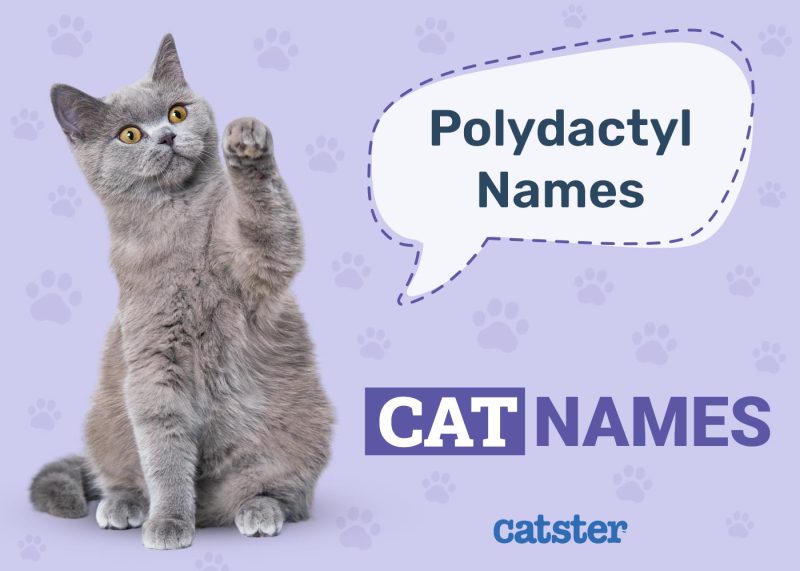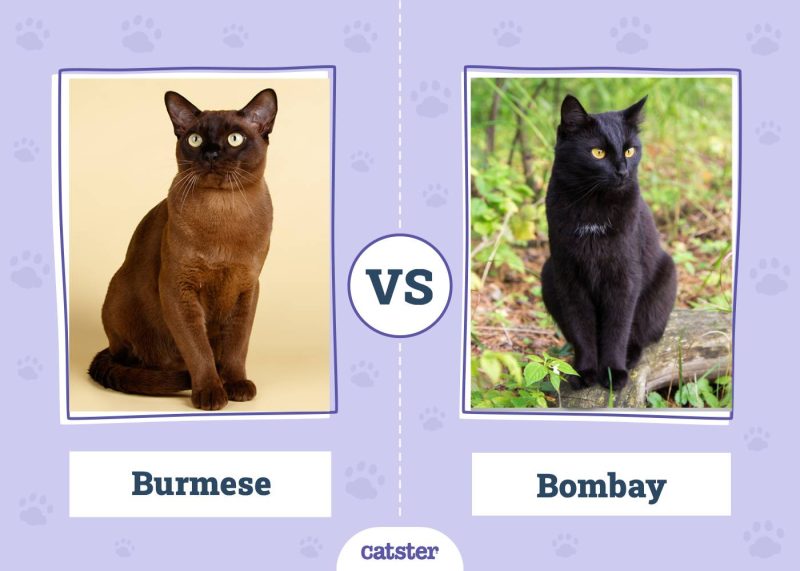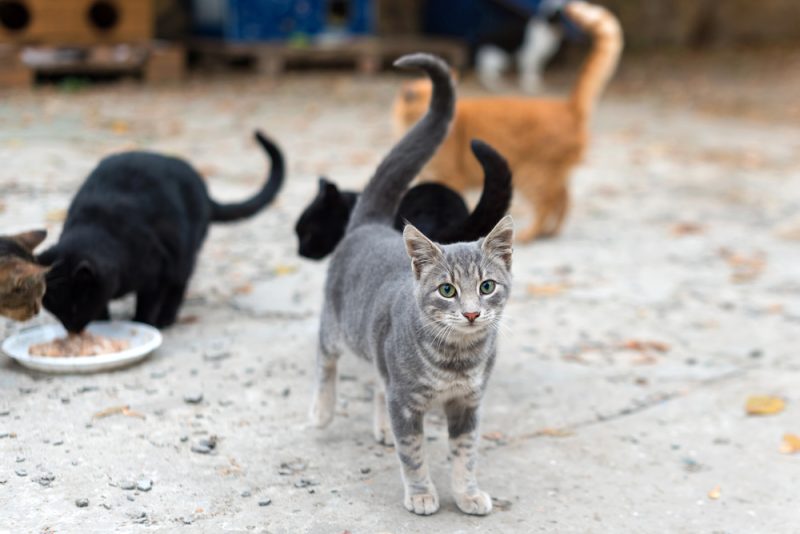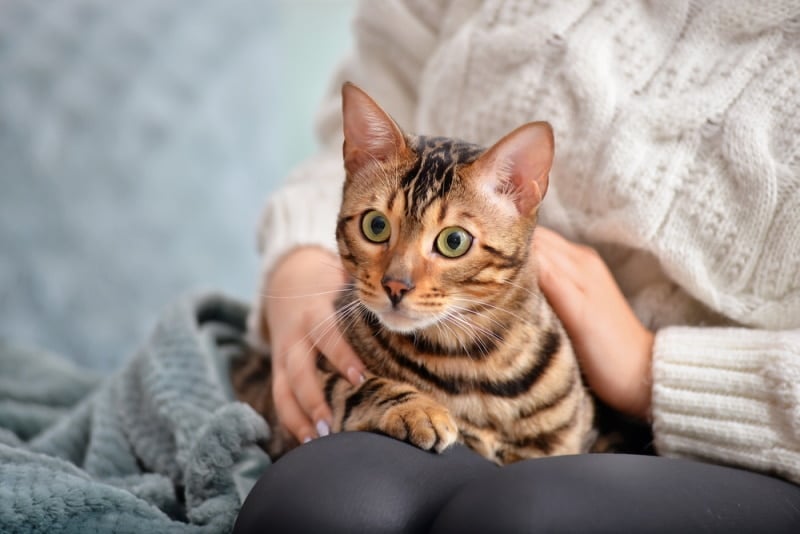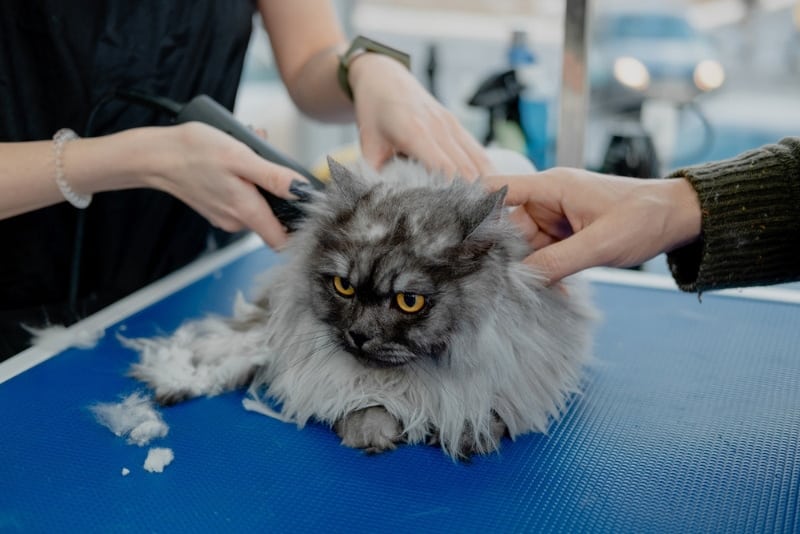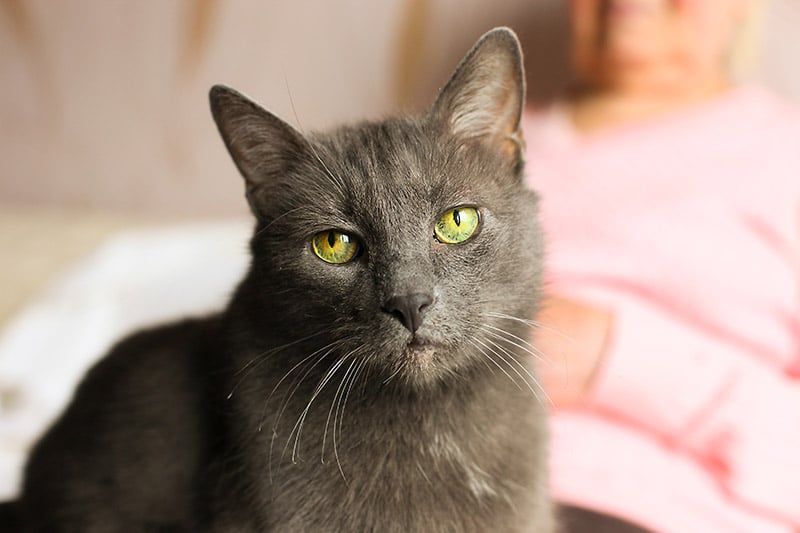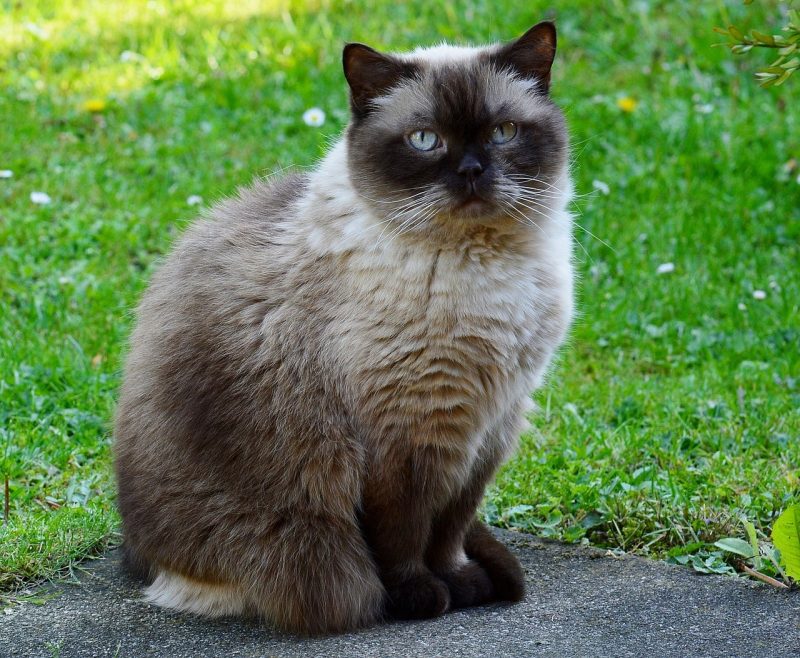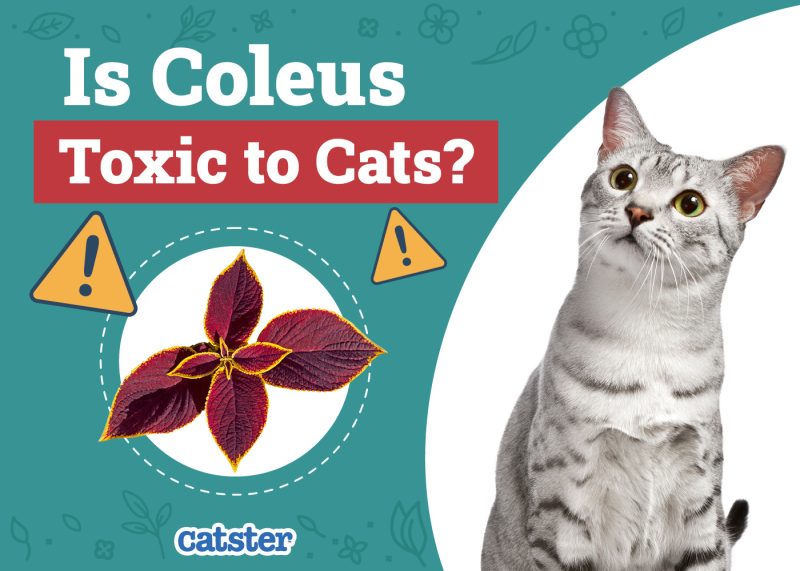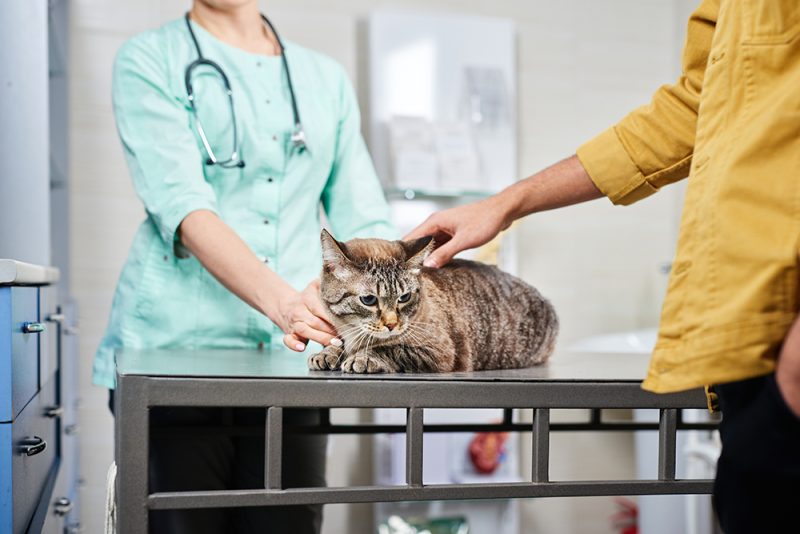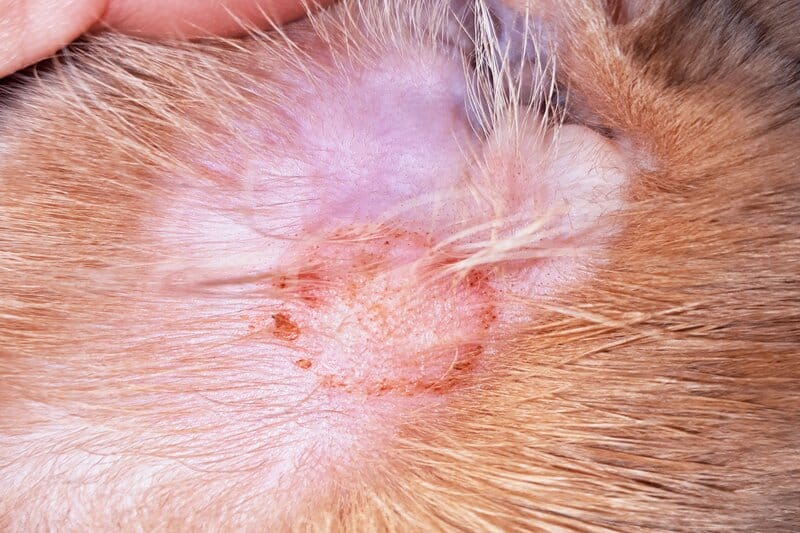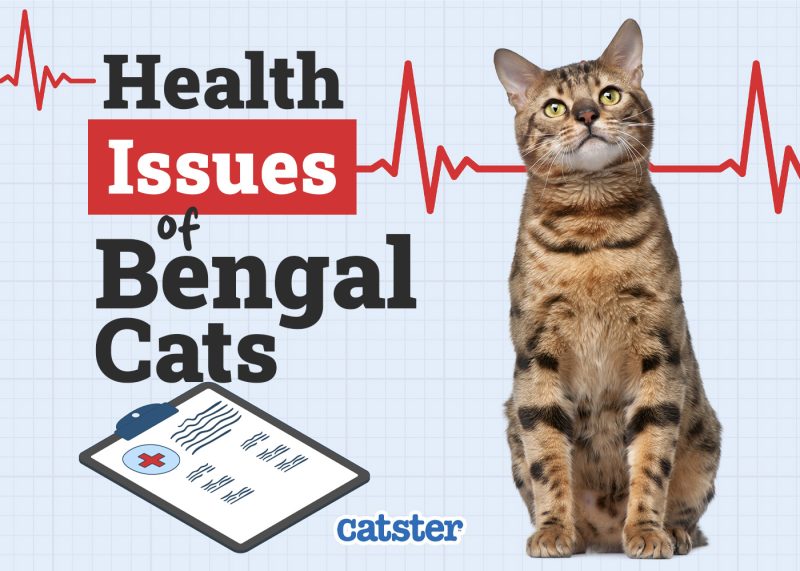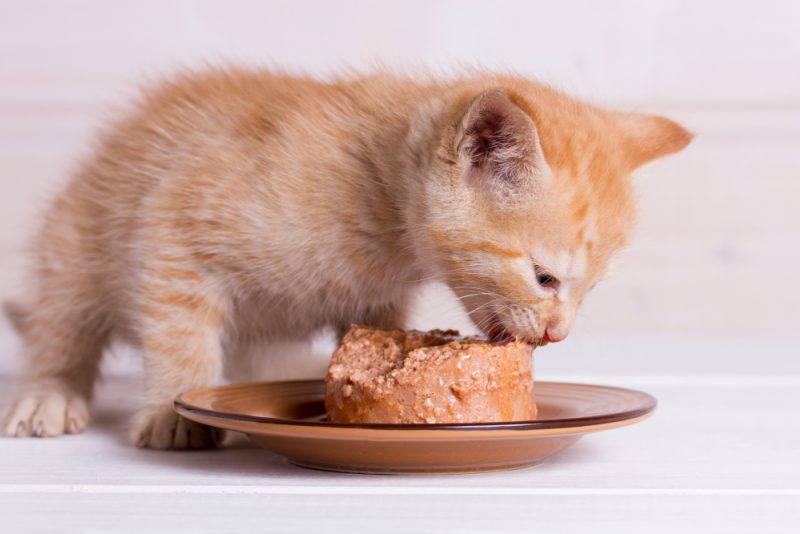Have you noticed your cat has a mouth sore that seems to be lasting longer than your average cut or graze? Your cat may be suffering from something called Eosinophilic Granuloma Complex. It is not common knowledge, but cats are prone to mouth sores caused by this disease, and it can manifest in many different ways in cats.
They often present as sores that look like little ulcers around your cat’s mouth. They can also be found on other parts of the body such as the paws, legs, stomach, and groin area. There are granulomas, indolent ulcers, and plaques, and with each type, there are slightly different clinical signs witnessed. They are all similar in the way they seem to spontaneously develop and the fact that they all seem to respond positively to steroid treatment.
The severity can vary greatly. Some will resolve on their own and require no treatment while others will need intensive management. Read on below to find out more.

What Are Mouth Sores in Cats?
Eosinophilic granuloma complex in cats is a group of idiopathic conditions that are currently quite poorly understood. The exact cause of the disease is unknown, however, there are various suggestions involving parasites, allergies, and genetic factors.
The three main clinical presentations of eosinophilic granuloma complex include:
- The ulcerative form (also known as indolent ulcer) is the type that is usually seen as a sore on your cat’s mouth. It is typically seen on the upper lip. They are normally red in color and do not appear to cause your cat any pain or irritation.
- The plaque form is often found on the undercarriage of your cat, on the stomach, and on the inside of the hindlegs. This type of lesion is often itchy and red and can easily become infected, which complicates matters.
- The eosinophilic granuloma is usually present as raised pink or yellow nodules. They can be located anywhere on your cat.
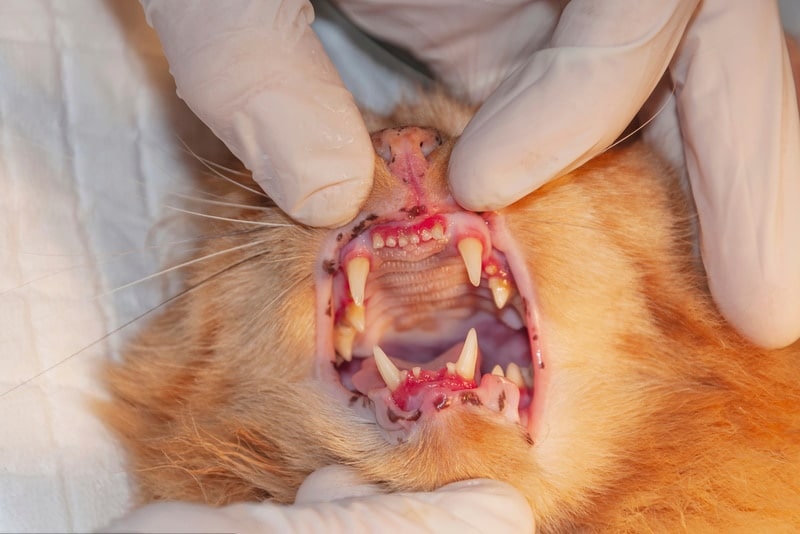
What Are the Signs of Mouth Sores in Cats?
In cats, the most common sign of an eosinophilic granuloma is a raised, discolored ulcerated lesion near the mouth, although they can be found in other areas of the body as well. They are frequently found on the upper lip.
They can be small, red in color, raised masses, or large destructive lesions that cause the outline of the lips to be distorted. Some lesions can be infected or bleed. They can span the lips and develop in the oral cavity too.
Typical clinical signs seen usually include:
- Mouth ulcers
- Lesions on the upper lip
- Ulcers on gums or elsewhere in the oral cavity
- Raised lesions
- Generally does not bleed
- Painless
- Potential to transform into a malignant tumor (this is a rare occurrence)
Diagnosis of Mouth Sores in Cats
To diagnose this disease, your vet will start by taking a full history from you and performing a physical exam on your cat. There will be certain clinical signs that will make them suspicious of the eosinophilic granuloma complex.
If they do suspect the disease, they will perform a fine needle aspiration biopsy (FNAB). This allows your vet to take a sample of a small number of cells to analyze under a microscope. They will be able to tell what type of cells are present in the mouth lesion and confirm if an eosinophilic granuloma is present. They will be looking for cells called eosinophils. The fine needle aspiration biopsy test can be done while your cat is conscious if they will tolerate it.
As only a very small sample of cells can be extracted, sometimes the test is inconclusive. If this is the case, a larger biopsy can be taken but this requires your cat to be put under general anesthesia.
Another way that your vet can sample the lesion is to do a sellotape impression smear. When looking at the imprint on the tape under a microscope, your vet can identify eosinophil cells present.
Biopsies can be useful to rule out more serious causes of sores such as malignant cancers. This can give owners peace of mind and help guide suitable treatment options. If an allergy is suspected as an underlying cause, your vet will carry out a workup to identify the allergen.
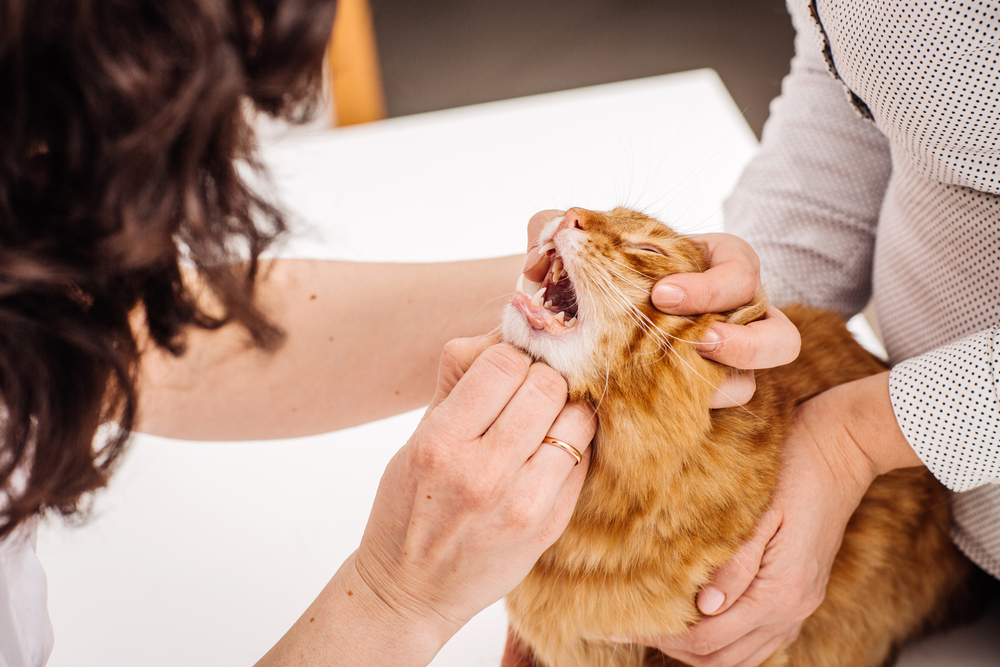
What Are the Causes of Mouth Sores in Cats?
Common causes of eosinophilic granuloma complex include:
- Food allergies
- Environmental allergies
- Fleas
- Other insects
- Genetic predisposition
There is thought to be a genetic component to the diseases as there are reports of related cats all being affected. More research is required to understand exactly what is going on.
Common causes of the lesions are thought to be the presence of flea infestations, infectious pathogens, and dietary or environmental allergies. In some cats, the cause cannot be identified.
How Do I Care for a Cat with Mouth Sores?
Wherever possible, your vet will treat the underlying cause. If the underlying cause is not identified, steroids or cyclosporine are often used. If there is an allergy suspected, cats will often respond well to an elimination diet or dietary trial. If there is a flea infestation, your vet will prescribe flea treatment. It is important to keep up to date with flea treatment as the development of the lesion is thought to be triggered by a hypersensitivity reaction to fleas. Often flea bites can cause an overreaction from the cat’s immune system, which can make existing clinical signs worse.
Topical creams containing steroids can sometimes be used, however, a lot of these are not appropriate for use in the oral cavity so cannot be used around the lip and mouth area.
When clinical signs are severe, the cat may require antibiotic treatment. Steroids are frequently used in conjunction with antibiotics.
In rare cases, if clinical signs are severe and lesions are recurring frequently, then more aggressive management is required. In these cases, a referral to a veterinary dermatologist is recommended.
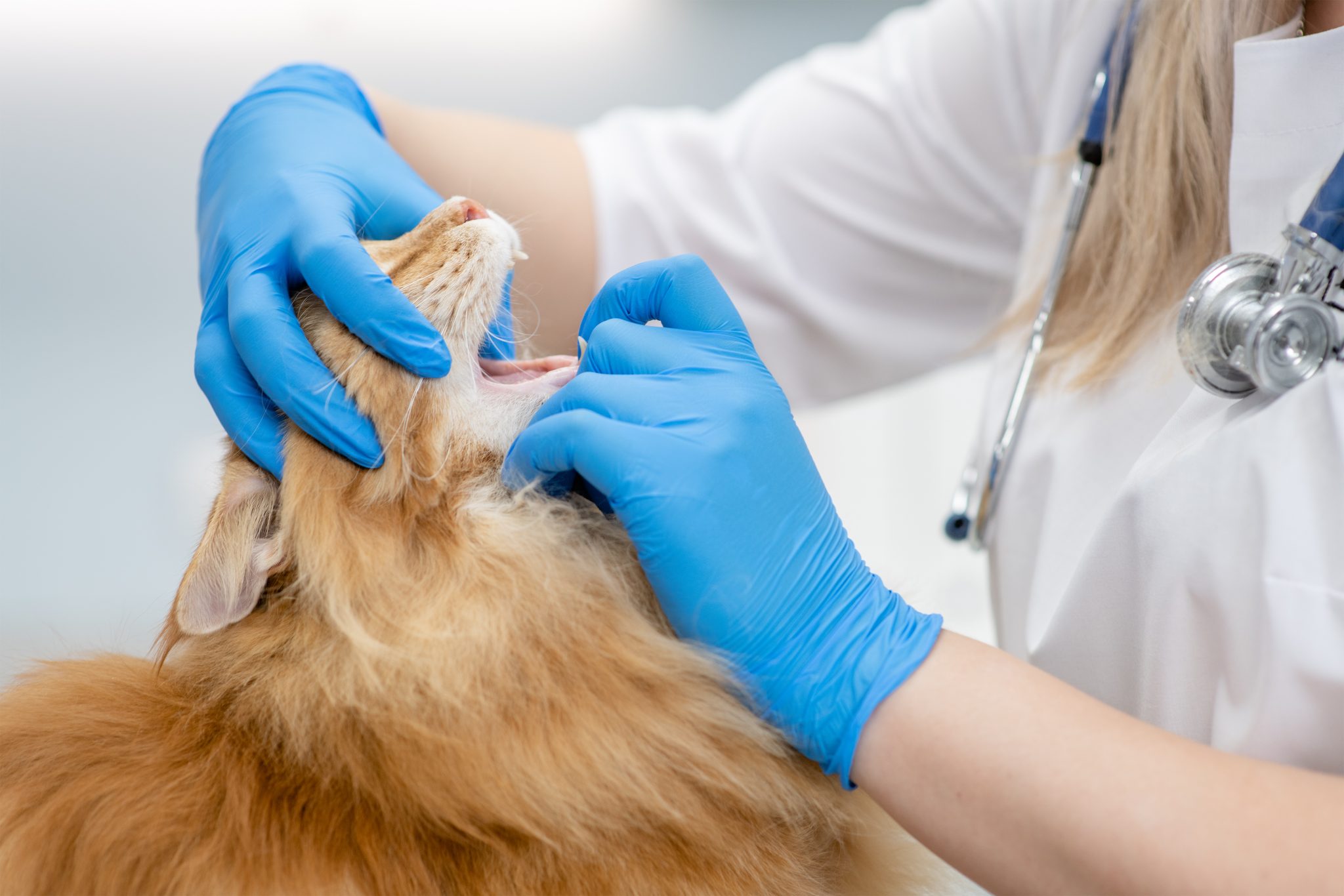

Frequently Asked Questions (FAQ)
What is the prognosis?
The prognosis is usually good. Most cases respond very well to treatment. Some require long courses of antibiotics and steroids depending on the severity of clinical signs and if the lesion becomes infected. Depending on what the underlying cause is, some cats are likely to have recurring incidences.
If owners are aware their cat suffers from the disease, it is recommended that they monitor for signs very closely. This is to ensure treatment is given as soon as clinical signs appear. Some cats will need lifelong treatment whenever lesions are present if they keep recurring.Â
Can mouth sores be cured?
There is no permanent cure for eosinophilic granulomas but there are plenty of effective management strategies. These can reduce and control clinical signs and offer cats comfort and relief, improving their quality of life.
How can I prevent mouth sores in my cat?
There is no way to prevent the development of eosinophilic granuloma complex. There are, however, ways that owners can minimize the risk factors. For example, using prescription flea medication, feeding a complete, well-balanced diet, and managing allergies can help to reduce the chances of lesions developing. It is also recommended to keep up to date with regular vet checks to ensure your cat is in good health.
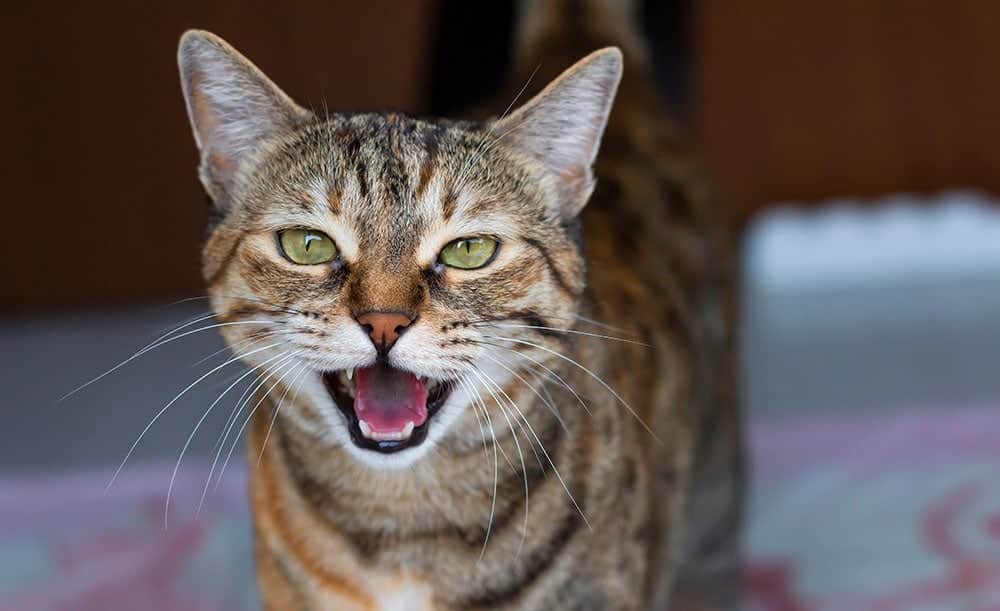

Conclusion
Eosinophilic granuloma complex is a relatively common problem seen in cats. There are three different types described that affect cats in slightly different ways. It is believed to be an inflammatory response to certain things the cat is exposed to such as allergens, and insect bites, but there may also be a genetic component.
It is a poorly understood condition currently and more research is required to understand the ins and outs of the disease. Definitive diagnosis is carried out by biopsy. Treatment options usually include steroids and immunosuppressive drugs. The prognosis for most cases is generally good, but it can be a lifelong issue for some cats and they may require long-term management.
If you are concerned your cat may be suffering from eosinophilic granuloma complex, arrange an appointment for your vet to examine them.
Featured Image Credit: De Jongh Photography, Shutterstock
